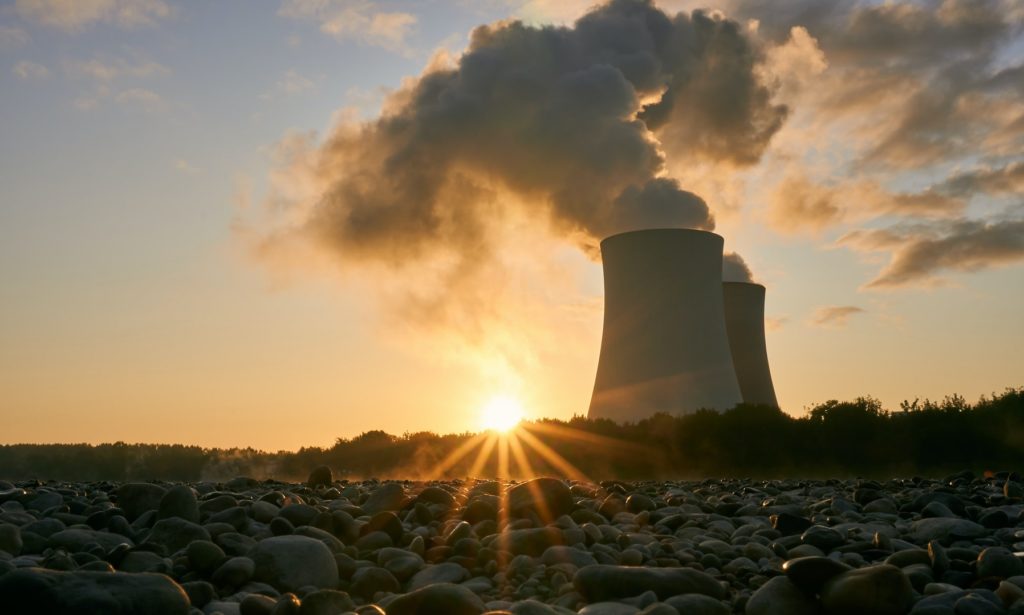Dr Philippa Holloway

The first time I visited a Nuclear Power Station my heart-rate increased. Fears triggered by childhood memories of the Chernobyl disaster were activated, and so began my research journey into how emotions and behaviours are informed by nuclear landscapes.
Vicki Lesley’s documentary film The Atom: A Love Affair reveals, through the narrative of an on-again/off-again romance, the world’s relationship with nuclear power, from the seductive promise of cheap, clean power in the 1950s, to the sense of betrayal at disasters like Chernobyl and Fukushima. Framing the scientific, political and social evolution of nuclear power in this way highlights that both professional and public engagement in the subject is never purely factual, but also emotional. As such nuclear energy strategies are shaped by both.
I visited Chernobyl as part of my doctoral research into how psychogeographic practice near nuclear power stations might inform the narrative of my forthcoming novel, The Half-life of Snails. Psychogeography is the study of how place affects the behaviours and emotions of individuals. When applied to nuclear power stations, I found the results are complex. As Vicki’s film explores, there is a strong emotional bond between professionals in the industry and the technology and promises it makes. They describe feeling proud of their work, of being a ‘family’. Indeed, nuclear power stations provide more than just jobs, but a sense of community and identity. Many people welcome them in. Others feel the opposite: threatened; worried, excluded from the narrative due to industry secrecy and security.
It is vital we listen to these emotional responses: each is valid, and tells us something important about the state of our relationship with nuclear power. But we also need to examine where the roots of such feelings are situated. Why are we eager/cautious about welcoming a power station into our communities? What are our hopes/fears? Who else is impacted, now and in the far future? What can the past tell us, and what are the alternatives? My own research took me from anxiety, to curiosity, to investigation, through self-reflection and finally to a stance based not purely on my childhood fears of a nuclear accident or war. Instead they became more nuanced, reflecting waste management strategies, decommissioning costs, the sociological impact on various demographics, health and environmental risk factors, and political strategies. I went from fearing a safely functioning power station to standing defiantly next to Chernobyl’s crumbling concrete sarcophagus, and understanding how the two related.
The Atom: A Love Affair offers a balanced overview of the issues, addressing both the emotional side of the arguments, and the factual. It encourages us to question why how and why our responses to nuclear power are formed, and ends with the statement that it’s up to us to decide the next step in our relationship, as citizens. While Vicki’s film cannot contain all of the data we need to decide, it’s the perfect starting point to begin assessing where we want to go from here. Should we renew our vows, or make a clean break of it?
Dr Philippa Holloway is an Author and an Associate Tutor in the Department of English, History and Creative Writing at Edge Hill University.
Photo by Markus Distelrath from Pexels
